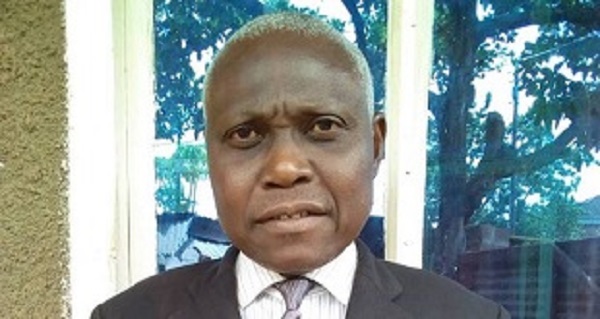Evangelical preacher, Moses Solomon Male, has watered down parliament’s plans to reintroduce Bill against homosexuality, saying the country has sufficient laws to curb it.
The existing provisions in the Penal Code Act carries a possible seven-year sentence for those caught in the same sex relations.
On Tuesday, Speaker of Parliament, Annet Anita Among, said Uganda must reject gay practices be a they destroy values and culture of the African people, before pledging that a Bill will be introduced as soon as possible to deal with the practice.
In fact, later on same day, Parliament granted leave to Bugiri Municipality Member of Parliament, Asuman Basalirwa, to introduce a private member’s Bill titled the Anti-Homosexuality Bill, 2023, seeking to prohibit any form of sexual relations between persons of the same sex and prohibit the promotion or recognition of such relations.
Now, according to Male, the problem is not lack of good laws, but “the system covering up the perpetrators.”
“I am still surprised that Ugandans can be duped that we have no laws on homosexuality. Parliamentarians and religious leaders are now dancing to the agenda of the homosexuals. ‘Bring the law, they will trash it through courts of law, then bring another on same sex and sodomizing women will be discretely legalized, then homosexuality will be legalized’. This is how they have done it worldwide.”
“Pastor Ronald Isabirye was convicted and sentenced to 120 years for ‘sodomizing’ six boys in Ssissa Entebbe, Shabash Muhamad sentenced to 10 yrs for sodomising Kasolo. Teacher Makande George sentenced to 12 years for sodomizing his pupil,” Pastor Male said.
“Paul Nabamba sentenced to 30 years for sodomizing 5 year old boy. Laws are not the problem. Problem are the systems covering the perpetrators,” he added.
He says he has many related cases he has handled to prove his stand. Male claims that perpetrators of homosexuality with links to top government officials are covered up, as opposed to those perceived as anti regime.
“If excited, you will one day cry remembering what I have said. We don’t need the Bahati bill back because it is pro-homosexuality and those advancing it are being used to advance the homosexuality agenda,” he reiterates.
10 years ago, ten years since President Museveni signed the Anti-Homosexuality Bill into law in 2014, becoming the Anti-Homosexuality Act (AHA), 2014. However, it was later annulled by Court for having been passed by Parliament without the required quorum of two thirds of all MPs.
Now, Speaker Among says, this time no excuse should be given by MPs for not being available to support the new bill. This, she said as she appealed to religious leaders to keenly watch actions of legislators in relation to the same.
“I want to request religious leaders that this time round be there to see ‘who is who?’ We will not allow that excuse of saying there was no quorum, now we are going to vote by show of hands. You are either for homosexuality or you are against. We want to see the kind of leaders we have in this country,” noted Speaker Among.
The development comes amid reports of growing homosexuality in the country including promoting it on social media with reports suggesting that gay groups and their networks, are now targeting learning institutions as major recruitment centres.
While signing the Anti-Homosexuality Bill into law in 2014, President Museveni flanked by ministers, MPs and senior health practitioners, said people who engage in same-sex relations are mercenaries recruiting young people into gay activities to get money.
“Homosexuals are nurtured but not natured. No study has shown that one can be a homosexual purely by nature. Since nurture is the cause, that is why I have agreed to sign the Bill into law,” Museveni said.
This, however, provoked international outrage, with Western countries threatening to stop providing aid to government. Among the countries that went ahead with this move was the United States.
“I encourage the US government to help us by working with our scientists to study whether, indeed, there are people who are born homosexual. When that is proved, we can review this legislation,” the President added.
The law became contentious because, according to proponents, it was aimed at “upholding and protecting Uganda’s cultural values against Western culture”. Those against the law said it was too harsh and against fundamental human rights.
The law, among others, prescribed tough penalties such as life imprisonment for aggravated homosexuality and same sex marriages, and a minimum of seven years in jail for other related offences.

